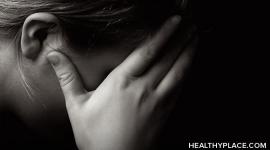Depression and Anxiety Treatment

Treatment for anxiety and depression is crucial. Depression and anxiety are two disorders that can debilitate an individual. However, when these disorders occur together, they tend to be worse than when either occurs alone.
Often, depression and anxiety are treated with the same techniques. Anxiety and depression treatment include medications, lifestyle changes, and therapy. Treatment for anxiety and depression is most successful if multiple techniques are combined.
Medication Treatment for Anxiety and Depression
The medications most often used to treat anxiety are a class of drugs known as benzodiazepines (also called "minor tranquilizers"). These include:
The main problem with these anxiety and depression medications is their potential for tolerance, physical dependence, and the likely recurrence of panic and anxiety symptoms when the medication is stopped. Hence, they are best used for treating short-term anxiety and panic.
It is essential to treat depression and anxiety together. When the depression is healed, symptoms of anxiety often diminish. For some people, the herb Kava provides relief from anxiety without the problem of addiction.
Exercise and Relaxation to Treat Anxiety and Depression
Because anxiety clearly has a physical component (especially when it manifests as a panic attack), techniques for relaxing the body are an important part of the treatment plan. Anxiety and depression treatment includes abdominal breathing, progressive muscle relaxation (relaxing the body's muscle groups) and biofeedback.
Regular exercise also has a direct impact on several physiological conditions that underlie anxiety and depression. Exercise reduces skeletal muscle tension, metabolizes excess adrenaline and thyroxin in the bloodstream (chemicals which keep one in a state of arousal) and discharges pent-up frustration and anger.
Cognitive-Behavioral Treatment of Depression and Anxiety
Cognitive-behavioral therapy (CBT) is a psychotherapy that helps alter anxious and depressive self-talk and mistaken beliefs that give the body anxiety-producing messages. For example, saying to yourself, "What if I have an anxiety attack when I'm driving home?" will make it more likely that an attack will ensue.
Overcoming negative self-talk is used to treat anxiety and depression. It involves creating positive counterstatements such as "I can feel anxious and still drive," or "I can handle it." What often underlies our negative self-talk is a set of negative beliefs about ourselves and the world. Examples of such mistaken beliefs are:
- I am powerless
- Life is dangerous
- It's not okay to show my feelings
Replacing these beliefs with empowering truths can help to heal the roots of anxiety and depression.(See the chart on cognitive distortions at the end of this section.)
Monitoring Diet to Treat Depression and Anxiety
Nutrition and diet can be monitored to aid in the treatment of anxiety and depression. Stimulants such as caffeine and nicotine can aggravate anxiety and leave one more prone to anxiety and panic attacks. Other dietary factors such as sugar, certain food additives and food sensitivities can make some people feel anxious.
Seeing a nutritionally oriented physician or therapist may help you to identify and eliminate possible offending substances from your diet. He or she can also help you to research supplements and herbs (e.g., GABA, kava, B vitamins, chamomile and valerian teas) that are known to calm the nervous system.
If you are suffering from a serious anxiety or depressive disorder, you may want to locate a clinic in your area that specializes in the treatment of anxiety and depression. Your local hospital or mental health clinic can give you a referral. In addition, you may wish to call (800) 64-PANIC to receive helpful material from the National Institute of Mental Health.
APA Reference
Tracy, N.
(2022, January 3). Depression and Anxiety Treatment, HealthyPlace. Retrieved
on 2026, January 19 from https://www.healthyplace.com/depression/anxiety-and-depression/depression-and-anxiety-treatment

